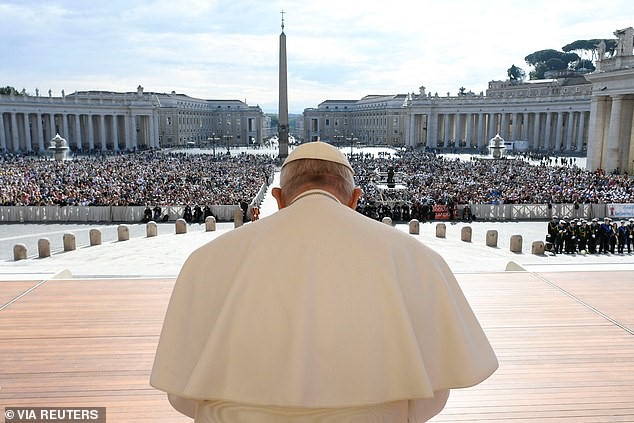From Rome to Nigeria, a Young Woman Reflects on the Legacy of Pope Francis
By Olu Abikoye, a Nigerian Lawyer and Youth Witness at St. Peter’s Square
In January 2025, I stood in St. Peter’s Square in Rome, one Nigerian among youth from across the globe. We had gathered not just to observe, but to witness a moment — and it became far more than any of us expected.
Pope Francis began with the Angelus prayer, his voice steady despite the obvious frailty of his body. But the moment did not end with tradition. After the prayer, he turned his gaze to us — young people from every nation — and spoke with calm strength: “You are the future. Do not give up because of the worries you face.”
It was not a grand address. It was a quiet charge. He ended with a blessing that felt deeply personal — as if, in his final months, he wanted to be sure we knew what mattered: faith, service, and one another.
That moment changed me. I am a young lawyer from Nigeria. I understand what it means to feel overwhelmed — by systems, by uncertainty, by the sheer weight of expectations. But Pope Francis reminded us all: leadership is not performance. It is presence.
This wasn’t a grand speech. It didn’t need to be. Pope Francis never relied on pomp or performance. He led with presence. He chose proximity over prestige. And in that moment, I realised something: the real power of the Church is not in how loudly it proclaims, but how humbly it loves.
Throughout his years as the 266th Pope of the Catholic Church, Pope Francis modelled leadership rooted in humility. He spoke for the environment long before it became fashionable, urging global stewardship in his landmark encyclical, Laudato Si’. He defended the poor, welcomed migrants, elevated the dignity of women, and called institutions to account with courage and grace.
He did not retreat from hardship — he walked through it, blessing others along the way. Yes, he also suffered. And yet, he served.
For young people like me, his passing wasn’t just the end of a papacy — it felt like the passing of a torch.
Not with a spotlight, not with applause — but with the quiet weight of trust.
He looked at us that day — really looked — and made it clear: we are not just successors of faith, but holders of it. Not tomorrow. Now.
The future? It’s not borrowed. Not deferred. It’s ours to bear.
What he left us wasn’t just a message.
It was a model.
Not to admire — but to adopt.
He may no longer be here to speak.
But everything he stood for still is —
Not performance. Presence. Not convenience. Courage.
He did not run from duty. He did not wait for comfort.
And now that his voice is quiet, ours must rise — with simplicity, with presence, and sometimes, with silence.
In Nigeria, where public trust is fragile and the future often feels deferred, this message matters.
His passing invites a question larger than any one faith:
Who will carry forward the work?
— the work of mercy, of justice, of leading with humility, of showing up when it’s hardest to do so.
This is a moment for young people — from every background, belief, and walk of life — to reflect on what we are willing to carry forward. Because in every corner of our world, the same question resounds:
Who will stand for others?
Who will serve, even when it is hard?
Who will show up when it matters most?
Pope Francis did.
Now it’s our turn.
The baton is in our hands now. Let’s not drop it.
— Olu Abikoye
About the Author:
The writer is a Nigerian lawyer who encountered Pope Francis on more than one occasion. Her final meeting with him in January 2025, during a youth gathering in Rome, inspired this reflection on his legacy and the torch he has passed to this generation.





